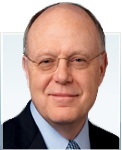FiercePharmaAsia combs earnings calls by major drug companies for notable and quotable nuggets on emerging markets and Asia to track the latest sales trends and insight into business outlooks in markets as diverse as China, India and Japan to Southeast Asia.
For the first quarter of the year, see remarks by top executives from Merck ($MRK) and Pfizer ($PFE), with more to come.
Merck
 |
| Merck's Adam Schechter |
Ken Frazier, chairman and CEO, stayed a bit in the background, on Asia and emerging markets during the April 28 earnings call, leaving Adam Schechter, executive vice president for Global Human Health, to carry that forward.
Schechter said that overall, international market sales grew 17%, with emerging markets showing strong demand.
He also noted the company's vaccine business spiked higher in Asia in the first quarter as launches started in Asia Zostavax.
But that in Japan, like other major pharma, the tone was downbeat.
"Japan sales declined 13% as growth in Pneumovax was offset by ophthalmology product divestitures and the bi-annual price decreases that took effect in April of last year," Schechter said, adding that overall "emerging market sales grew 7%, including 16% growth in China."
Pfizer
 |
| Pfizer CEO Ian Read |
If a tree fell in a forest in China would a U.S.-based analyst hear it? Maybe even Ian Read, chairman and CEO of Pfizer, might have wondered the same on the April 28 earnings call as nary an analyst mentioned the halt of Prevnar sales in China.
Read happily told the analysts that emerging markets saw 12% operational growth--and then noted straight away that Prevnar/Prevenar was a star worldwide.
"Prevnar 13 had a very strong quarter, particularly in the U.S. where revenues increased 80%," Read said.
"This was primarily due to strong uptake amongst adults 65 years of age and older, following the positive recommendation from the US Centers for Disease Control and Prevention's advisory committee on immunization practices as well as the timing of government purchases for the pediatric indication compared to the year-ago quarter. Revenues for the adult indication were approximately $300 million in the quarter."
One would think that in China, the most populous country in the world and with an aging population, might be another key sales point for Prevnar 13.
This is especially the case after the company in April halted vaccine operations in China following failure to get a license renewal for its existing Prevnar shot. A new wider coverage of the same vaccine for pneumococcal diseases, Prevnar 13, also awaits approval, highlighting issues with the approval process in the Middle Kingdom as well as fierce competition in the vaccines space regionally.
That competition includes Chinese vaccines producer Sinovac ($SVA), which laid out R&D plans in April to test a Pneumococcal 13-valent conjugate vaccine candidate that has the potential to challenge Big Pharma's standing in the country.
Nope, none of that was discussed on the call.
However, Frank D'Amelio, chief financial officer, was kind enough to run through the key figures.
"First-Quarter VOC (vaccines) revenues increased 29% operationally due to the 51% operational revenue growth, from our global vaccines business, as a result of Prevnar 13, which grew 80% in the U.S. and 15% in internationally, and the inclusion of Baxter's marketed vaccines in Europe, Nexium 24 Hour in the U.S., the launch of Ibrance in the US in February, and Xalkori and Inlyta globally.
Still, just to make sure the analysts get a bit of a hint, Read took it upon himself to talk more about vaccines, highlighting again how important they are to the company's fortunes.
"We now have a broader market in vaccines portfolio for preventing serious illnesses, which includes the most widely used pneumococcal conjugate vaccine in the world, Prevnar 13, with more than 750 million doses distributed," Read said.
"Trumenba, recently approved to prevent invasive disease caused by Group B meningitis in people aged 10 through 25, and vaccines to protect against disease caused by Group C meningitis and to help prevent tick-borne encephalitis through acquiring Baxter International's marketed vaccines."
- here are the Merck release and Pfizer release